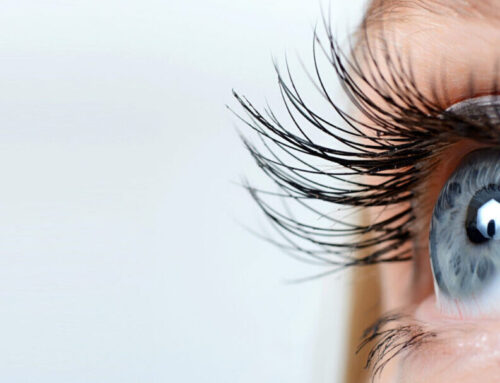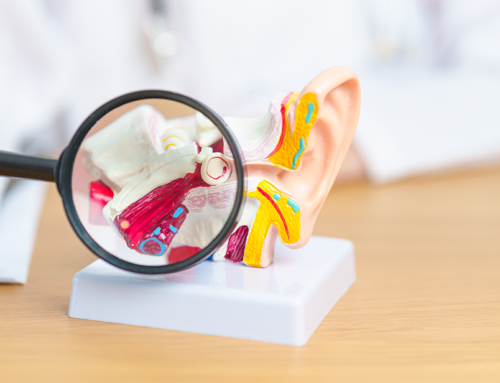Can cochlear implants heal tinnitus?
Cochlear implants can relieve persistent ear noise in single-sided hearing loss

Ringing, buzzing, humming or whistling – one in four of us knows these annoying noises in the ears from personal experience. In Austria, 800,000 people suffer from tinnitus [1], and up to 80 percent of people with hearing loss frequently complain of chronic tinnitus [2]. If left untreated, tinnitus can significantly impair quality of life. Scientists from the research team at Antwerp University Hospital (UZA) have confirmed that in case of unilateral deafness, a cochlear implant can provide lasting relief.
The common causes
Tinnitus is a common symptom of various disorders in the ear. For example, it can be triggered by a middle ear infection or a hearing loss as a result of a blast trauma. This can lead to irreparable damage to the inner and outer hair cells in the cochlea. “Tinnitus is a malprocessing of acoustic signals in the brain. The noise from the nerve cells is filtered out in a healthy ear. When this no longer functions properly, the noises become more noticeable and the annoying ringing in the ears occurs,” explains Prof. Dr. Paul van de Heyning, head of the ENT department and co-director of the Department of Neuromodulation at Antwerp University Hospital. “Stress and psychological pressure can further increase ringing in the ears.”
Putting tinnitus into perspective
There are still no medications that can completely heal tinnitus in the long term. In case of a milder form or when it first appears, medications that promote blood circulation are usually prescribed first. In case of chronic tinnitus, the so-called psychotropic drugs can in some cases contribute to the improvement which, via their effect on the central nervous system, can reduce the tinnitus amplification originating there.
Tinnitus retraining therapy (TRT) aims to put the perception of tinnitus into perspective and consists of various components. An individual psychological support or counseling, helps to identify stress-reinforcing habits and to develop coping strategies. Another option are apparative procedures: Noise generators produce a quiet broadband noise in the ear for several hours a day. This way, the brain is supposed to interpret the tinnitus as unimportant, get used to it, and let it disappear from conscious awareness. The redirection of attention can additionally be achieved by visual stimuli, listening to music, making music or hypnotherapy.
Cochlear implant treatment for unilateral hearing loss and tinnitus
If tinnitus develops in people with unilateral hearing loss, surgical treatment with a cochlear implant is promising. A research team from the University Hospital of Antwerp led by Prof. Dr. Paul van de Heyning, presented the results of several long-term studies last year [3]. These demonstrate the positive effect of cochlear implants in the treatment of patients with single-sided deafness (SSD), not only in terms of speech understanding, but also in the treatment of tinnitus.
All study participants confirmed a reduction in tinnitus loudness from severe to mild. In some cases, the reduction was even greater. “Volume control with activated CI is stable and therefore provides lasting relief. This opens up a completely new indication for treatment with cochlear implants,” said Patrick D’Haese. Hearing implant systems from MED-EL were used in the study. In 2013, MED-EL was the first provider to receive CE marking for the commercialization of cochlear implants for unilateral hearing loss in children and adults.
1 Source: Profil
2 Source: http://www.oessh.or.at/hoerspuren/tinnitus
3 „Cochlear implantation as a durable tinnitus treatment in single-sided deafness“ (Cochlea-Implantate zur dauerhaften Tinnitusbehandlung bei einseitigem Hörverlust). Punte A. K., Vermeire K., Hofkens A., De Bodt M., De Ridder D., Van de Heyning P. Veröffentlicht: Cochlear Implants International, 2013, W. S. Maney & Son Ltd.






